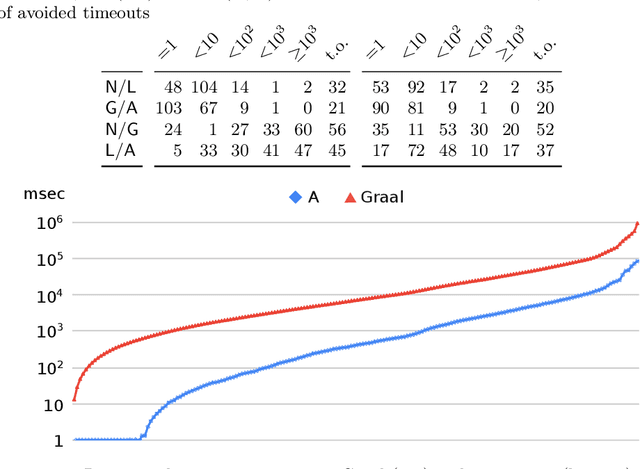Larry González
Efficient Dependency Analysis for Rule-Based Ontologies
Jul 20, 2022
Abstract:Several types of dependencies have been proposed for the static analysis of existential rule ontologies, promising insights about computational properties and possible practical uses of a given set of rules, e.g., in ontology-based query answering. Unfortunately, these dependencies are rarely implemented, so their potential is hardly realised in practice. We focus on two kinds of rule dependencies -- positive reliances and restraints -- and design and implement optimised algorithms for their efficient computation. Experiments on real-world ontologies of up to more than 100,000 rules show the scalability of our approach, which lets us realise several previously proposed applications as practical case studies. In particular, we can analyse to what extent rule-based bottom-up approaches of reasoning can be guaranteed to yield redundancy-free "lean" knowledge graphs (so-called cores) on practical ontologies.
 Add to Chrome
Add to Chrome Add to Firefox
Add to Firefox Add to Edge
Add to Edge